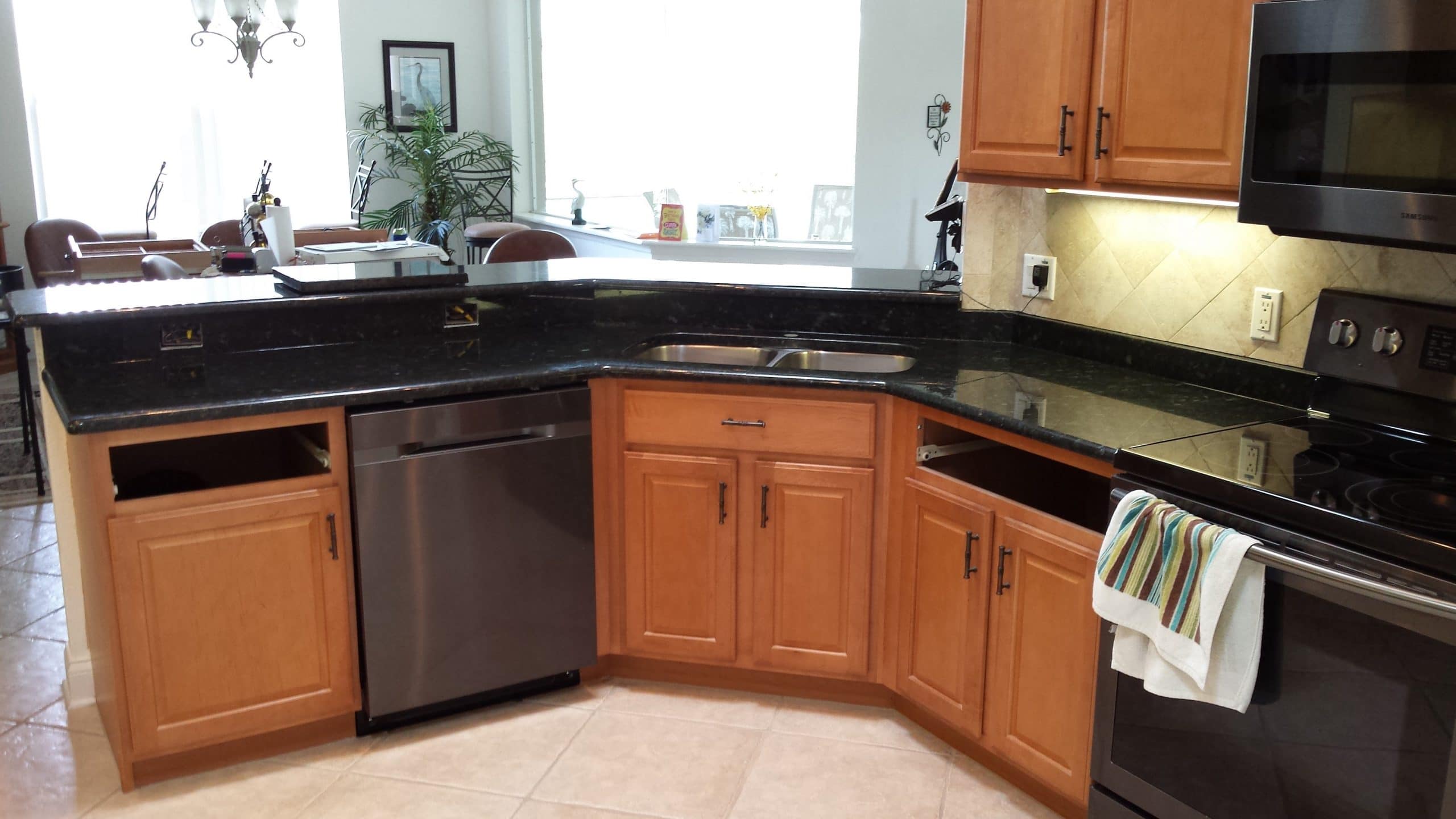Quartz countertops are another option for your kitchen or bathroom. We will talk about quartz countertops here or you can call us at (813) 860-5785. One of our staff at Taken for Granite and Marble will be able to answer practically any question you have about our products, fabrication process, or installation. Visit our products page if you’re interested in granite colors.
Quartz: The Basics
Made from among the hardest minerals in the world, quartz countertops are perhaps the most resilient choice for cooking areas. They’re likewise some of the most captivating. They are available in a wide array of colors, consisting of fire-engine red and apple green. However, they also come in earthy browns, blacks, and creams, with shimmers and veining for the appearance of granite or marble.
Unlike natural-stone pieces, which are mined, these slabs are crafted in a factory. Their primary ingredient is ground quartz (about 94 percent). They are combined with polyester resins to bind it and pigments to give it color. For some designs, percentages of recycled glass or metal flecks are contributed to the mix. The resins also assist make these counters stain and scratch resistant– and impermeable. Therefore they never ever need to be sealed. Compare that with granite, the reigning king of high-end counter tops. Those usually require a new protective top coat a minimum of once a year.
In the past, the most significant knock against quartz was that it lacked the patterns and color variations you get with natural stone. But that’s a moot point now. This is since all the producers using multihued pieces with adequate flecks, swirls, and random pattern to make them nearly indistinguishable from the real thing. They were as soon as offered only with a polished finish; now you can get one with a refined, sandblasted, or embossed treatment. So if it’s the appearance of matte limestone, textured slate, or shiny granite that you want, there’s a quartz countertop for you.
Granite-like movement in black and gray gives this quartz counter top a vibrant, standard appearance.
How They’re Made
Natural-quartz crystals are mined, then ground into a dust or an aggregate that’s fused with resin binders under intense heat and pressure to form a strong piece. Pigments added throughout the process impart color to the countertop.
For how long do they last?
For as long as you have your cooking area. Quartz countertop producers supply service warranties varying from 10 or 15 years to lifetime, depending upon the company.
Are Quartz Countertops Right for You: Pros
It’s low-maintenance.
Unlike natural stone or wood, it never requires to be sealed. Avoid searching pads, which can dull the surface, and harsh chemicals that might break down the bonds between the quartz and resins.
It’s antimicrobial.
Resin binders make quartz counters nonporous, so stain- and odor-causing germs, mold, and mildew can’t permeate the surface area.
It’s design-friendly.
Some makers provide jumbo pieces for undisturbed runs of countertop. The resins likewise make quartz more versatile than natural stone, allowing producers to flex and shape it into sinks or the sides of a curved island.
Are Quartz Countertops Right for You: Cons
It can’t take extreme heat.
Quartz counters are heat and scorch resistant, however just up to a point. Most makers state their items can handle up to 400 degrees F, but a sudden change in temperature level or sustained heat from a pan left on the counter might cause the surface area to fracture. To be safe, always use a trivet or a hot pad.
It can’t weather outdoor use.
Install it outdoors in an uncovered area, and you’ll void the service warranty. Direct sun beating down on it day after day can trigger colors to fade or the countertop to warp or split with time. Presently, none of the major manufacturers uses an outdoor-approved quartz counter.
Made from one of the hardest minerals on earth, quartz countertops are perhaps the most durable option for cooking areas. Their main active ingredient is ground quartz (about 94 percent), combined with polyester resins to bind it and pigments to provide it color. If it’s the look of matte limestone, textured slate, or shiny granite that you want, there’s a quartz counter top for you. We’ll go over the pros and cons of quartz countertops so you can make the finest choice.
The resins likewise make quartz more versatile than natural stone, enabling producers to bend and form it into sinks or the sides of a curved island.
There is a lot of different information available on quartz countertops. For more info on quartz countertops call us at (813) 860-5785 or you can contact us by using our contact form.
